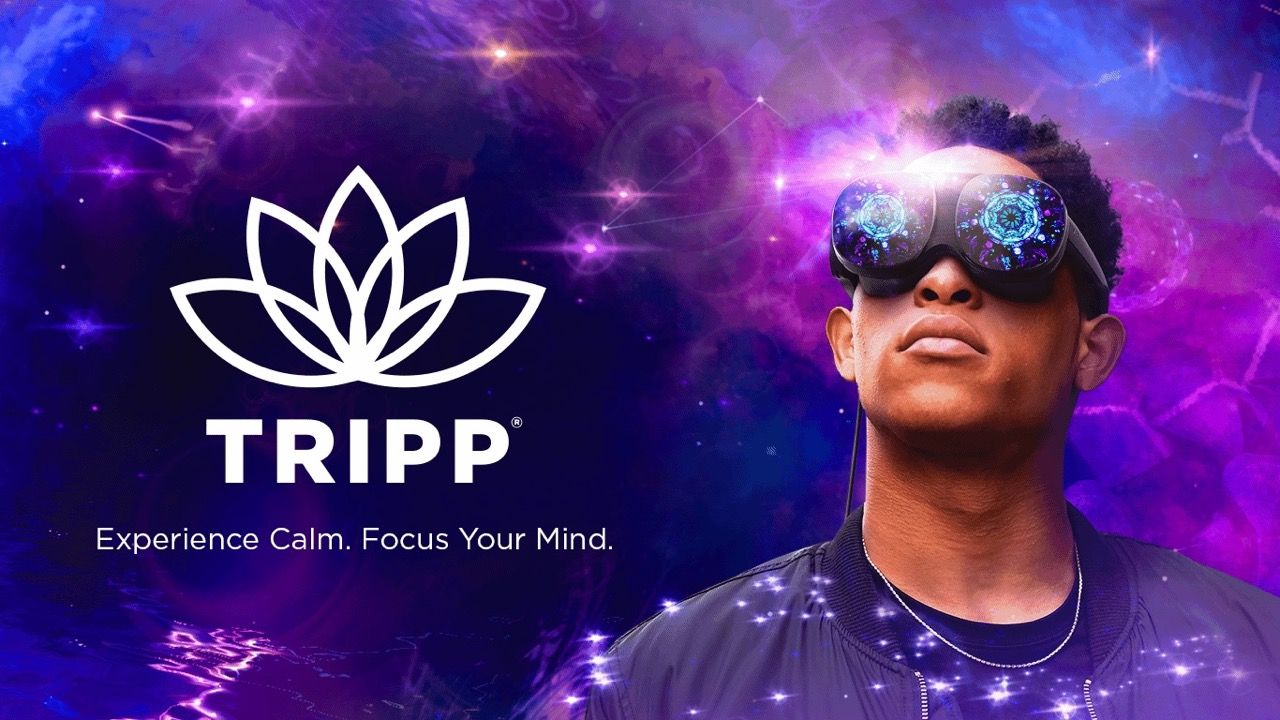Enhance Meditation and Sleep Quality with VR Meditation

Headsets | Extended Reality
4-minute read
Seeking tranquility in a hectic world? Consider meditation as a pathway to this serene state. In this ever busy era with mounting stress, even with constant external distractions, we are all searching for a way to keep our inner peace. The ancient practice of meditation is fast becoming the secret weapon for people to combat stress and regain inner tranquility, as well as improve sleep.
However, don't think that everything will happen naturally just by sitting down and closing your eyes. The path to real meditation is full of challenges. You may find yourself struggling to resist external distractions, such as the noise of traffic, endless TikTok videos, or even the restlessness that resides deep within your mind. These challenges are particularly prominent for beginners who are just starting meditation. Do you have these problems?
Do you have the same problem?
A new path: VR meditation
Fortunately, with technology, a new path to achieving true meditation is quickly being realized: VR meditation. When VIVE Flow was first launched, HTC started working on applications in this area and positioned this lightweight VR headset as a product that "enhances users' physical and mental health." There are also many related software applications, such as the VR meditation platform TRIPP and the VR application VIVE Dreaming for "dreaming."
The research we are introducing today is conducted using TRIPP VR. TRIPP VR creates an immersive virtual environment to help users enter a meditative state more quickly and thus potentially improve sleep quality. By combining dream-like scenes, soothing visuals along with relaxing sounds, gentle voice guidance, and professional mindfulness techniques, TRIPP VR integrates art and technology to improve the problems encountered in traditional meditation processes, allowing users to fully achieve relaxation and stress relief more easily than before.
VR meditation is more effective than traditional meditation
Without firsthand experience, you might think that VR meditation is just a gimmick. However, a new research shows that VR meditation is indeed more effective than traditional meditation!
"A Comparative Study of VR Technology in Meditation Scenarios" is led by Gou Ge, a psychotherapist from Utrecht University in the Netherlands. The purpose of this study is to verify the practical effects and advantages of VR in meditation practices. The study used a randomized controlled trial method and recruited 100 volunteers with meditation and sleep improvement needs. The participants were randomly assigned to two groups: one group used traditional meditation methods (mindfulness voice guidance), while the other group used VIVE Flow and TRIPP VR for VR meditation.
During the 45-day experiment, researchers collected participants' physiological data (such as heart rate, heart rate variability, and brain waves) and self-assessment questionnaires. These data helped researchers evaluate and compare the effects of the two meditation methods on promoting relaxation, stabilizing emotions, and improving sleep quality.
In conclusion, participants using VR meditation showed significant advantages in entering a deep meditative state. The study made the following five major findings:
1. The impact of VR meditation on deep meditative states:
Participants' self-assessments showed that 90% of the VR group participants were able to enter a deep meditative state through VR technology. Additionally, 89% of the VR group participants felt insulated from the outside world after using VR meditation, indicating that VR meditation helps isolate external distractions and enhances the effectiveness of meditation.
2. Changes in heart rate (HR) and heart rate variability (HRV):
The data showed that participants in the VR group experienced a significant decrease in heart rate and positive effects on heart rate variability. Heart rate variability is an indicator of how the heart adapts to internal and external environmental changes. In situations with less psychological stress, HRV values are usually higher. Although traditional meditation also has positive effects on heart rate and heart rate variability, the short-term effects may not be as significant as VR meditation.
3. Electroencephalogram (EEG) results:
EEG data analysis showed that most of the time, VR meditation surpassed traditional meditation in terms of depth and stability. Interestingly, towards the end of the study, the scores for deep meditation began to converge between the two groups. This may indicate that although VR helps beginners shorten the learning curve for meditation, in the long run, the effects of traditional meditation gradually improve with more practice and become closer to the effects of VR meditation.
4. Ability to return to a meditative state after interruption:
Compared to traditional meditation, participants using VR were able to re-enter a deep meditative state more quickly after being interrupted, with an average time of 50 seconds, while traditional meditation took 70 seconds.
5. Impact on sleep quality:
After a period of meditation training, both groups showed improvements in sleep quality. It is worth noting that compared to the traditional group, the VR group had longer deep sleep time and better sleep quality.
However, VR motion sickness still needs to be overcome
Research also pointed out that VR meditation is not completely flawless. Approximately 5% of users experienced dizziness and discomfort during the VR meditation process. In addition, excessive reliance on technology is also a potential problem. If VR meditation is really that good, everyone may lose the ability to meditate without these devices.
If you practice meditation,are you are a traditionalist or a VR enthusiast? If meditation is not easy for you, perhaps you should try VR meditation and open up a new world for yourself. Regardless of which type of meditation you practice, it is important to find a method that you're most comfortable with to truly achieve deep mindfulness and rejuvenate your body and mind.

